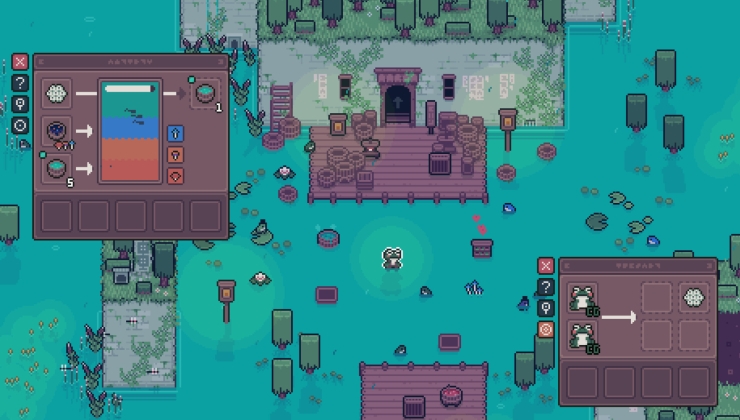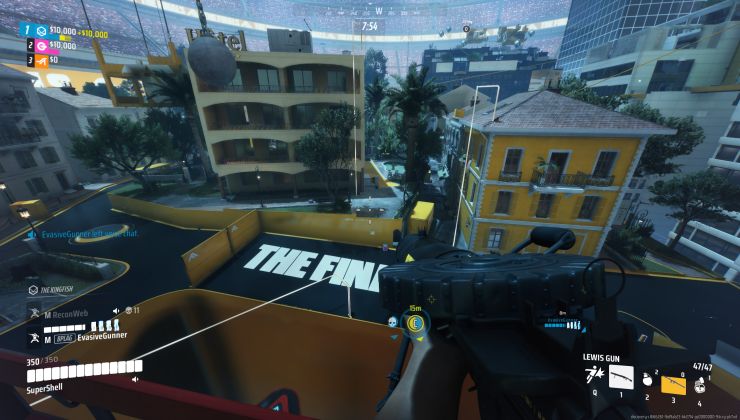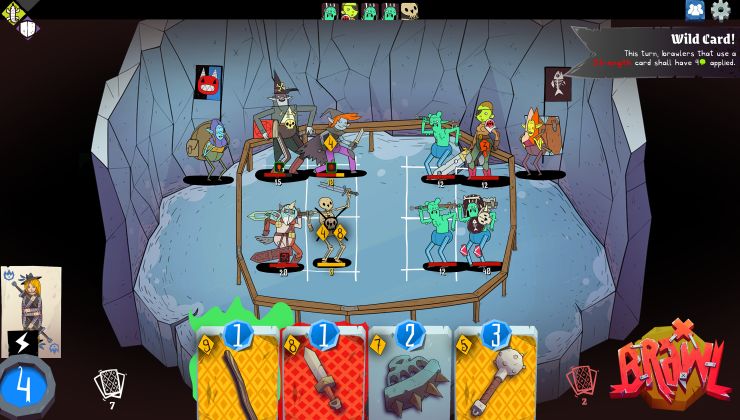Want to get more info behind the scenes on how Steam for Chrome OS works? It uses Linux but it's a little bit complicated and Google has put out the first in a series of blog posts to talk more about it.
The good news of course for normal Linux desktop fans, is that developers will need to ensure their games work on Linux directly. Either through a Native build, which should work out of the box, or ensuring and testing their Windows builds with Proton. Although, Steam Play Proton is not turned on by default for Chrome OS as there's various issues right now.
How does it work then? Through the magic of virtual machines! Using work they've done in the past with Crostini, an already existing way to run normal Linux apps on Chrome OS and "Chrome OS's own virtual machine monitor (VMM), crosvm". They say running Steam and games in a container like this "provides another layer of security above normal Linux systems" that's used for Crostini, Android, and Parallels.
Their system, much like SteamOS for the Steam Deck, is based on Arch Linux which they codenamed "Borealis", and it's automatically kept up to date for you with each Chrome OS release. Keeping it simple, while hiding all the technical parts for users, as they say "we have aimed to make the VM invisible to the user – from both an operational and from a performance perspective". They do this by using "Linux's KVM hypervisor" and "paravirtualized virtio-based devices instead of emulation" and that to play the latest games they built a Vulkan virtualization driver called "Venus".
Borealis and Crostini differ in a number of ways, while still sharing the core graphics and display pipeline, so applications support Vulkan and OpenGL using Mesa drivers. It uses XWayland, together with "sommelier", which they say is their "proxying Wayland compositor" and then it all moves over to "exo" which is their own Wayland display server. The big difference is user experience with Borealis targeting end users and Crostini for developers, with Borealis enabling one-click installs like Steam. The other big difference is that Borealis is based on Arch Linux, while Crostini is based on Debian.
The way they've configured it sounds a lot like the Steam Deck too, with the VM being read-only while having a separate read-write partition for data and they're shipping newer versions of Mesa than what is usually tagged as a release upstream.
Google said to expect "deep dives" on their Steam integration, their Vulkan virtualization, how to develop games for ChromeOS and much more. We can also expect "new devices, new features, better integration and improved performance".
It's titled 'chrome (unstabble)' v102.0.4987.0.1
In tests it is loading pages instantly!!!
The other version on Discover is: v100.0.4896.88-1
Valves bundled version is: Version 100.0.4896.75
Does this mean I will start hearing ChromeOS users saying I use Arch btw? I hope not!
This has been Arch's goal the entire time! Everyone is moving to Arch, whether they like it or not!
They say running Steam and games in a container like this "provides another layer of security above normal Linux systems"...Except that is just an excuse for bad design. Linux has multiple ways to secure a system without the complexity and overhead of a VM: containers / cgroups, chroots, read-only filesystems, etc. And if that is not enough, SELinux exist.
Yeah, I don't particularly like ChromeOS...
Last edited by Linas on 13 Apr 2022 at 6:45 pm UTC
i dont like how any of this sounds,android didnt helped linux desktop, instead it created its own ecosystem , and nowadays its painfull to run android apps on desktop linux and linux softwares on android.
hell its easier to find an good android emulator for windows than for linux.
and now with chromeOS, i can see the samething happening again, i can understand the security argument, but we always trusted the comunity to make an safe system, chromeOS seem to be more closed than android or even windows in that regard.
it help nothing that the games on googleplay are basically 'free ads for the true product, in game itens' i want linux to grow at the desktop, but not to get something worse than windows.
i dont like how any of this sounds,android didnt helped linux desktop, instead it created its own ecosystemI don't think this will have any big impact on desktop Linux at all. On a global scale there are about as many Chrome OS users as there are desktop Linux users. And even then, only selected few Chromebooks will be able to run Steam, so even a smaller userbase. If anything it seems that Google is trying to catch up with the desktop Linux, not the other way round.
nope, looks like you are will informed.i dont like how any of this sounds,android didnt helped linux desktop, instead it created its own ecosystemI don't think this will have any big impact on desktop Linux at all. On a global scale there are about as many Chrome OS users as there are desktop Linux users. And even then, only selected few Chromebooks will be able to run Steam, so even a smaller userbase. If anything it seems that Google is trying to catch up with the desktop Linux, not the other way round.
a lot of stats show chromebook marketshare already surpased all other linux desktops.
keep in mind that this is concentrated on only a few regions, where google heavly promoted then, i remember that chromebooks were on the "best seling" devices from amazon-usa for a few weeks or months, im not sure the category i think it was laptops.
a lot of stats show chromebook marketshare already surpased all other linux desktops.That is why I said [on a global scale](https://gs.statcounter.com/os-market-share/desktop/worldwide). Also the fact remains that only the high end Chromebooks will be able to run Steam.
keep in mind that this is concentrated on only a few regions
I am not trying to say that Chrome OS is less relevant than desktop Linux, because in the big picture they are both miniscule. It's just that Chrome OS and desktop Linux don't overlap all that much.
Google are setting themselves up for the worst case scenario here. Anyone who tried gaming in a VM knows how janky that can be. Input device passthrough, GPU virtualization, etc. all have caveats. Also they are using Wayland, which still has issues with Proton. Not only that, they are making their own Wayland server, their own drivers, their own VM software, none of which is relevant on desktop Linux. Neither is it in any way representative of a desktop Linux system when it comes to game compatibility and testing for developers.
what an alphabet soup, it sound like an over complicated work arround...Let they do what they want.
i dont like how any of this sounds,android didnt helped linux desktop, instead it created its own ecosystem , and nowadays its painfull to run android apps on desktop linux and linux softwares on android.
hell its easier to find an good android emulator for windows than for linux.
and now with chromeOS, i can see the samething happening again, i can understand the security argument, but we always trusted the comunity to make an safe system, chromeOS seem to be more closed than android or even windows in that regard.
it help nothing that the games on googleplay are basically 'free ads for the true product, in game itens' i want linux to grow at the desktop, but not to get something worse than windows.
As kong as it will brings more playable games, i'm fine with it.
That is why I said [on a global scale](https://gs.statcounter.com/os-market-share/desktop/worldwide). Also the fact remains that only the high end Chromebooks will be able to run Steam.dude, chromebooks are marketed in a few regions only, and they are already more popular than linux in the entire world, imagine when google start marketing then world wide, currently its focused on the most profitable markets, once it get enough marketshare there google will try elsewhere.
also, high end today are the low ends of tomorrow, in the near future those high ends will be the midle ends and in the long term they will be the cheapest options, google will not make steam exclusive to high end models of their chromebooks forever, soon or later every chromebook on the market will be able to run steam.
I am not trying to say that Chrome OS is less relevant than desktop Linux, because in the big picture they are both miniscule. It's just that Chrome OS and desktop Linux don't overlap all that much.im not saying linux users will give up on traditional linux distros to use chromeOS, the issue is that chromeOS might become as popular as windows or android, without that benefiting other distros, hell it might even be more locked down than windows.
Google are setting themselves up for the worst case scenario here. Anyone who tried gaming in a VM knows how janky that can be. Input device passthrough, GPU virtualization, etc. all have caveats. Also they are using Wayland, which still has issues with Proton. Not only that, they are making their own Wayland server, their own drivers, their own VM software, none of which is relevant on desktop Linux. Neither is it in any way representative of a desktop Linux system when it comes to game compatibility and testing for developers.in other words, their system will be an exotic system compared to every other distro, just like android, can you see the issue now?
currently is relatively easy to run windows games on linux, and many other softwares too, it might be harder to run chromeOS exclusives on other linux distros than windows software.
in order to understand this article, you need to solve the dependences of the folowing vocabulary:
- Steam
- Chrome OS
- Linux
- desktop
- Native build
- Windows builds with Proton.
- Steam Play Proton
- virtual machines!
- Crostini
- virtual machine monitor (VMM), crosvm
- container
- layer of security
- Crostini, Android, and Parallels
- Steam Deck
- Arch Linux / debian
- Borealis
- VM invisible to the user – from both an operational and from a performance perspective
- "Linux's KVM hypervisor
- paravirtualized virtio-based devices
- emulation
- vulkan
- Vulkan virtualization driver - "Venus
- core graphics and display pipeline,
- applications support Vulkan and OpenGL using Mesa drivers
- XWayland
- sommelier
- proxying Wayland compositor
- "exo" which is their own Wayland display server.
- VM being read-only
- read-write partition for data
- upstream







 How to set, change and reset your SteamOS / Steam Deck desktop sudo password
How to set, change and reset your SteamOS / Steam Deck desktop sudo password How to set up Decky Loader on Steam Deck / SteamOS for easy plugins
How to set up Decky Loader on Steam Deck / SteamOS for easy plugins
See more from me